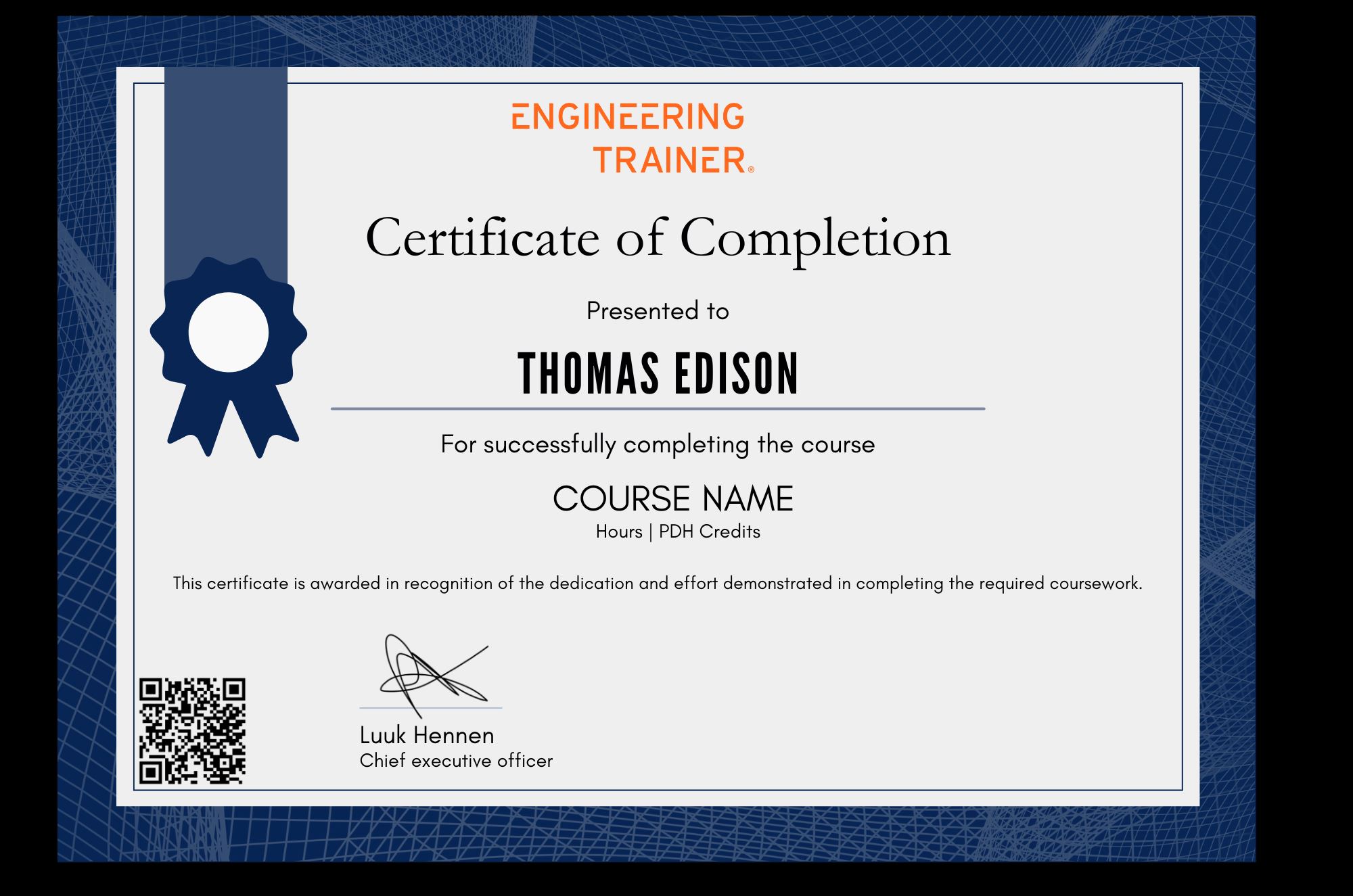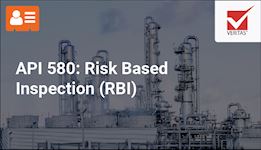Crude Oil Selection
Why take this course?
Gain practical insights into the crude oil selection process and its impact on refinery operations with this self-paced course. Covering topics such as crude assay interpretation, blending, compatibility, and economics, the course includes video lectures, quizzes, and awards a certificate with PDH credits upon completion.
What you'll learn
After this course, you...
• have an appreciation of the complexity and the impact of a crude selection on the refining process and the quality of finished products,
• able to generate and interpret the Crude Oil Assay,
• know how to build the crude basket,
• understand the principles of crude blending and crude compatibility,
• have seen how to manage crude contaminants and the role of additives,
• can perform an evaluation of crude processing – technology and economy aspects,
• are able to perform the process simulation and simplified unit capacity calculation,
• understand the environmental concerns associated with crude oil processing,
• are knowledgeable about the impact of the crude oil processing on the quality of the finished products.
About the course
The refining industry has changed noticeably over the past years, with an ample supply of opportunity crudes available. Considering that crude oil purchasing represents approximately 85% of a refiner’s cost structure, it is a key factor in achieving profitability goals. There are many challenges in the processing of opportunity crudes, however, by respecting the general rules of the selection process, risks can be considerably decreased.
This training course is focused on the crude oil selection process and its impact on refinery processing and the quality of finished products. It provides practical guidance on the building, interpretation and significance of the crude basket, crude oil assay generation and interpretation, yields, economics, crude blending, compatibility, stability, environmental impact, and post-evaluation process. Additionally, the course gives perspective on how crude oil quality impacts the refinery assets and refining processes.
The course consists of online live sessions with the instructor spread across a 3 day period. All training content is provided through your EngineeringTrainer account. These live sessions will include plenty of opportunity to interact with the instructor through asking questions and discussion of the case examples.
Who should attend this course
• Refinery unit managers• Refinery technical personnel
• Planning and scheduling specialists
• Trading and blending specialists
• Crude trading specialists
• Laboratory supervisors and technical personnel
• Sales, marketing, and product trading specialists
• Professionals looking for business benefits from managing the crude selection process
Prerequisites
This course is suitable for a range of personal and there are no specific prerequisites. Some affinity with crude oil processing is beneficialProgram & Details
-
Introduction to Crude Oil Selection
Live
1. Crude market outlook and demand
2. Crude oil value chain
3. Cost of crude oil production
4. How the crude oil market works?
5. Benchmark or marker crudes
6. OPEC crude basket -
Opportunity Crude Oils
Live
1. Availability
2. Environmental issues
3. Long-term economic viability
4. Light/heavy crude oil spread
5. Challenges in processing
6. Elements of successful processing -
Crude Oil Chemistry and Classification
Live
1. Hydrocarbons, elements, and metals
2. Rearranging of molecules
3. Combustion of hydrocarbons
4. Classification of crude oils
5. Tight and shale crude oils
6. Opportunity crudes -
Crude Oil Selection Process
Live
1. Feedstock flexibility
2. Key elements of the crude oil selection process
3. Basic criteria for crude oil selection
4. Crude selection strategy
5. Crude oil selection parameters
6. Crude oil contaminants
7. Crude oil's carbon footprint -
Crude Oil Stability
Live
1. Asphaltenes and crude oil stability
2. SARA analysis
3. Asphaltene destabilisation
4. Asphaltene precipitation and deposition cycle
5. Prediction of asphaltene stability
6. Impact on processing -
Crude Oil Evaluation Process
Live
1. Management of Change process
2. Stakeholders
3. Elements of the crude oil evaluation process
4. Comparison of the main operational parameters
5. Environmental feasibility of crude oil processing
6. Economic evaluation process -
Crude Oil Assay
Live
1. Importance of Crude oil assay
2. Key elements of Crude oil assay
3. Types and formats
4. Data generation
5. Laboratory and generic data
6. Crude oil assay data interpretation -
Crude Oil Blending
Live
1. Importance of blending strategy
2. Principles and rules of blending
3. Lookalike crude oils
4. Types of crude oil blending
5. Blending ratio
6. Crude switching -
Crude Oil Compatibility I
Live
1. Crude compatibility and crude contaminants
2. Types of crude compatibility
3. Asphaltenes
4. Stability of blends
5. Laboratory testing of crude stability
6. Crude instability and incompatibility -
Crude Oil Compatibility II
Live
1. Crude oil compatibility matrix
2. Crude blending matrix
3. Crude basket
4. Master table of evaluated crudes
5. Case study – Additives stabilisers -
Economic Evaluation of Crude Oil Selection
Live
1. Key elements of refining economics
2. Profitability of refinery
3. Crack spread
4. Gross refinery margin
5. Planning and scheduling
6. Crude segregation -
Crude Oil Refining
Live
1. Introduction
2. The general principle of operation
3. Blending
4. Treatment
5. Refinery performance
6. Refinery complexity -
Refinery Processes and Opportunity Crudes Processing
Live
1. Options for resid upgrading
2. Delayed coking
3. Solvent deasphalting
4. Visbreaking
5. Resid fluid catalytic cracking
6. Resid hydrotreating and hydrocracking -
Case Study - Crude Selection Process
Live
1. Objective
2. Crude oil assay
3. Compatibility test
4. Approval for processing
5. Post-evaluation report
6. Conclusion – essential steps of the crude selection process (wrap up) -
Course Final Notes
Live
Course summary and discussion
Certification


Why choose EngineeringTrainer
-
Unlimited Team-wide Access
-
Advance Technical Competences
-
Courses by Industry Authorities
Since using EngineeringTrainer our internal mentorship has a much more matured character.
Logan Chapman - COO at Chapman Consulting Inc.
Request a Quote
Train Smarter. Grow Faster.
Build real-world skills that help you make better engineering decisions, reduce errors, and stand out in your field.







